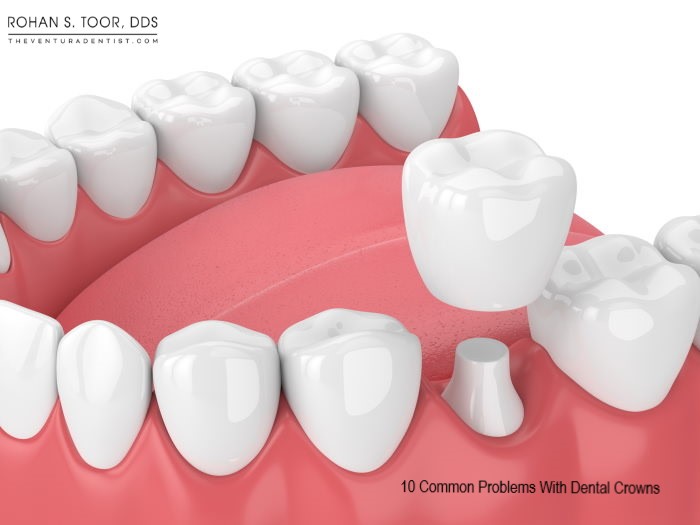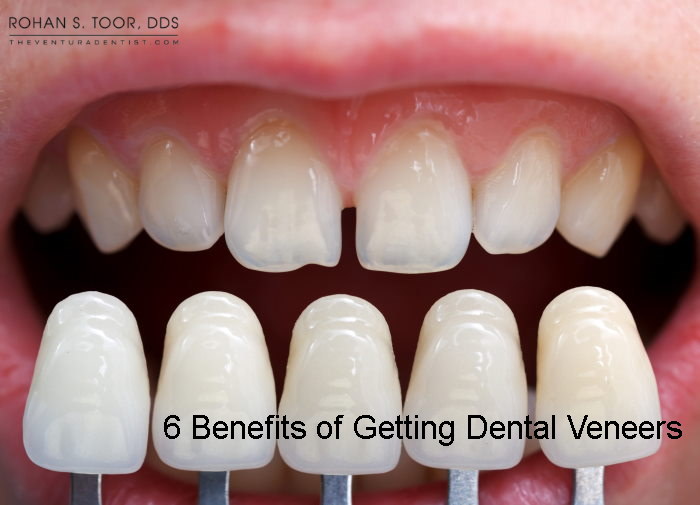What Are the 10 Most Common Problems With Dental Crowns?

Dental crowns serve as caps that are placed over damaged teeth to provide protection, coverage, and restoration of the tooth’s shape. When fillings are inadequate, crowns are recommended. However, decay is a frequent issue that arises with dental crowns, often caused by poor oral hygiene following the placement of the crown. To avoid tooth decay from affecting your dental crown, it is important to brush your teeth twice a day and floss regularly.
What 10 Problems Could Develop With a Dental Crown?
Although crowns are typically made from durable and resilient materials, they can still break or crack over time. Minor cracks can often be repaired, but if there are multiple chips or breaks, more significant issues may arise.
-
Loose Dental Crown
Although it can be concerning, a loose dental crown is a relatively common problem. Fortunately, if the crown is in good condition, your dentist can quickly reattach it using cement. It’s important to contact your dentist as soon as possible to address the issue because injury or decay can easily affect the dentin beneath the crown.
-
Poor Crown Placement
In some cases, a poorly fitted dental crown can affect your bite. If the crown is uneven, it may cause your bite to be misaligned, which can result in discomfort in the future. It’s important to have a dentist address and resolve this issue, as they are the only ones who can provide treatment.
-
Sensitivity
After getting a dental crown, patients may experience sensitivity to hot and cold food and drinks for the first two weeks. Additionally, a tingling sensation may persist for some time after the crown is placed. However, this sensation should gradually fade away over time.
-
Damaged Crowns
The most common problem associated with damaged dental crowns is an increased risk of decay. Bacteria can easily penetrate the tooth underneath and around the crown, making it vulnerable to decay. If left untreated, this can lead to other issues such as gum disease.
-
Tooth Decay
Poor oral hygiene can be a leading cause of tooth decay under a dental crown. Failing to practice good oral hygiene habits, such as brushing and flossing regularly, can increase your risk of developing decay under the crown. It’s important to be aware of how to detect tooth decay under crowns.
-
Bite Problem
In some cases, a dental crown that doesn’t fit properly can affect your bite. If the crown is uneven, it may cause discomfort or lead to a misaligned bite when clenching your teeth. It’s important to have a dentist treat and resolve this issue, as they are the only ones who can provide proper treatment.
-
Nerve Trauma
The tooth may still contain nerves if a dental crown is placed without a previous root canal. Occasionally, these nerves can become compressed by the crown, resulting in inflammation and injury. Additionally, old fillings that have worn down under the crown may allow bacteria to grow, potentially leading to a nerve infection.
-
Greyed Gums
It can lead to increased visibility of a greyish appearance if there is any gum recession that exposes the root surface. While this may not be aesthetically pleasing, it is not a cause for concern. It’s simply the darker root or metallic material of the crown that is visible through the gum.
-
Allergic Reactions
While rare, some individuals may develop allergic reactions to dental crowns containing metal. However, dentists typically inquire about any sensitivities before proceeding with the crown placement. Symptoms of an allergic reaction may include soreness or swelling of the gum or surrounding tissues around the crown.
-
Cosmetic Issues
A dental crown that doesn’t match the color of your surrounding teeth may look out of place. Dental crowns can be made in various colors to match the shade of the patient’s teeth for a more natural appearance.
-
Gum Irritation
A dental crown has the potential to irritate the gum tissue surrounding it, leading to inflammation and gum recession. These conditions can be uncomfortable and painful.
-
Excessive Dental Wear
During the placement of a dental crown, your dentist may need to modify its surface to ensure it aligns properly with the neighboring teeth. However, this process has the potential to wear down the adjacent teeth, especially if the crown is made of strong material.
Being aware of the most common problems associated with dental crowns is essential to prevent them from occurring. Maintaining good oral hygiene and keeping an eye on any loose crowns are equally important to avoid issues.
How to Fix Dental Crown Problems
- Tooth decay – You should floss frequently and brush your teeth twice a day.
- Uneven bite – Make an appointment with your dentist to have your new crown’s bite and fit evaluated.
- Sensitive teeth – Have your dentist examine the tooth to look for exposed edges or healthy nerves.
- Allergic reactions – choose dental crowns made of porcelain rather than metal. Crowns made of porcelain are more allergen- and biocompatible-friendly.
- Cosmetic issues – When the crown is permanently affixed to your mouth, make sure the dentist checks that it matches the shade of your natural teeth.
- Excessive dental wear – See your dentist if you believe your crown is too abrasive or is wearing down too quickly so they can modify the surface and stop further wear.
How Do I Prevent Dental Crown Problems from Occurring?
Preventing dental crown problems is crucial, and good dental hygiene plays a key role in achieving this. Make sure to brush your teeth twice a day and floss regularly. Regular dental checkups are also important to help your dentist identify any signs of crown damage or decay early on.
How Do You Tell If a Tooth Crown Is Not Fitted Properly?
It may indicate that the crown doesn’t fit properly or has been damaged if your dental crown feels loose. A properly fitted dental crown should match the size, length, and shape of your tooth and fill any gaps, while also feeling natural when you bite down. If your crown feels loose, it’s important to visit your dentist to have it examined and treated as needed.
Can Bacteria Grow Under a Crown?
Yes. Bacteria can easily infiltrate underneath a dental crown if an individual has poor oral hygiene. Once bacteria penetrate the crown, they begin to convert any sugars in the area into acids that erode the enamel.
Why is My Crown Sensitive to Pressure?
Post-procedure sensitivity or discomfort after getting a dental crown may be more common in cases where the dentist has had to remove a significant amount of enamel or decay, especially if they drilled too close to the nerve.
What to know about crown besides common problems?
The
dental crowns procedure involves preparing the tooth, taking impressions, and placing a custom-made crown over the tooth. Besides the procedure itself and common problems like decay, chipping, and fracture, it’s important to know that crowns can be made of different materials such as porcelain or metal, and can also be used for cosmetic purposes to improve the appearance of a tooth. The
dental crowns price can vary depending on the material used, the complexity of the procedure, and your location, so it’s best to discuss the costs with your dentist beforehand.
Are you a candidate for dental crown treatment? Don’t waste any time and call Dr. Rohan Toor at
Rohan Toor Dental Care to schedule an appointment.
 Dental crowns serve as caps that are placed over damaged teeth to provide protection, coverage, and restoration of the tooth’s shape. When fillings are inadequate, crowns are recommended. However, decay is a frequent issue that arises with dental crowns, often caused by poor oral hygiene following the placement of the crown. To avoid tooth decay from affecting your dental crown, it is important to brush your teeth twice a day and floss regularly.
Dental crowns serve as caps that are placed over damaged teeth to provide protection, coverage, and restoration of the tooth’s shape. When fillings are inadequate, crowns are recommended. However, decay is a frequent issue that arises with dental crowns, often caused by poor oral hygiene following the placement of the crown. To avoid tooth decay from affecting your dental crown, it is important to brush your teeth twice a day and floss regularly.

